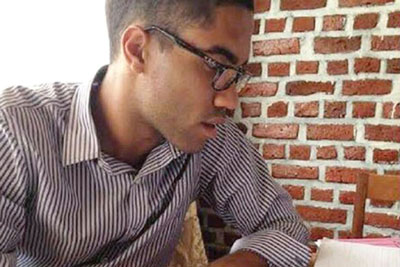
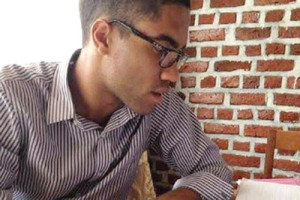
Meet the Black AIDS Institute’s Justin Woods: I felt responsible to decrease the HIV burden on people like me
For most African American college graduates, making money and getting a job is the foremost thought in their minds. Not Justin Woods; he had his sights set on joining the Peace Corps. “I wanted to travel, be of service to others and challenge myself,” Woods says of his decision to join the volunteer program.
After graduating in 2012 from George Washington University, Woods returned to his hometown of Colorado Springs. “I’d always wanted to get away [from Colorado], so there wasn’t a better place to get a degree in political science than Washington. D.C.,” he says.
Once back home, Woods worked for a year while teaching English as a second language for adult learners in order to complete the volunteer requirement for Peace Corps eligibility. Despite some parental concern, in 2013 the Peace Corps sent Woods to Rwanda as a volunteer, and he spent two years teaching English to secondary school students—grades 10, 11 and 12 in the U.S. education system—and facilitated Grassroot Soccer, an 11-week program for students and community members focused on HIV prevention and education and fighting stigma.
“I extended my stay for a third year to work for a local Rwandan health human rights [nongovernmental organization] doing HIV prevention and intervention with HIV key populations,” says Woods. Those key populations include female sex workers and men who have sex with men (MSM). “In Rwanda, the only way they acknowledge LGBT people, or at least gay men, is when it comes to HIV, as they are at a higher risk to be impacted by the virus.”
Woods wanted to continue working with the Rwandan LGBT community, particularly MSM, so he applied for a grant through USAID Rwanda (the U.S. Agency for International Development), when he returned to the U.S. “I even went back to Rwanda for a brief period to explore opportunities and logistics of working with the LGBT community, but unfortunately it didn’t work out,” Woods adds.
Although that door had closed, Woods still wanted to be involved with marginalized or disadvantaged communities. “As a gay Black man, I felt a sense of responsibility to decrease the burden of HIV on people who look like me,” he says.
Through Idealist, a search engine specializing in non-profit and volunteer opportunities, he found the Black AIDS Institute, and since March he has been a project coordinator, providing technical and programmatic assistance to BTAN chapters in Chicago, Detroit and Louisiana. “And I’m currently working in partnership with Greater Than AIDS and the Louisiana Office of Public Health to coordinate the Institute’s participation in Essence Festival 2017.”
Woods expresses gratitude for the experience gained in Rwanda: “At first my dad struggled to understand my desire to join the corps, but after visiting me there, he saw it in the context of what Rwanda is like and the importance of being there. He also noticed the way I’d grown and changed since being there. I think he definitely saw the value after the fact.
“And I think it’s absolutely important for more Black Americans to join the Peace Corps because not enough of us are traveling,” he continues. “My experience in Rwanda is that their perception of Black Americans is what they see on TV and in music videos, and we all know that is not representative of Black America. It’s important that they interact with us so they can get a perception of the Black American experience.”
The violence inflicted on Black Americans has not gone unnoticed over there. “For them, that’s a curiosity, so they’re trying to make sense of it,” he says. “One of the students asked why do the police kill all the Black men. So they’re very much trying to understand how does this happen, because it obviously doesn’t make sense.”
April Eugene is a Philadelphia-based writer.


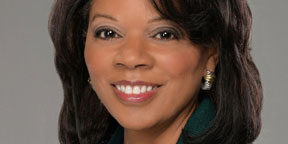
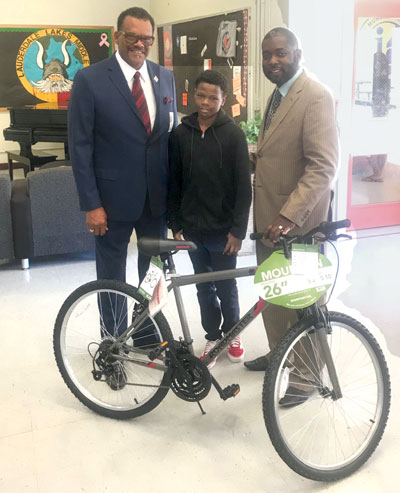
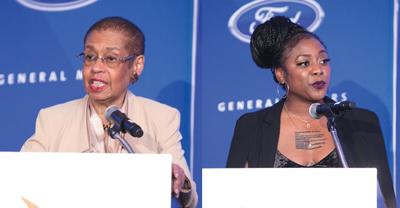
Be the first to comment